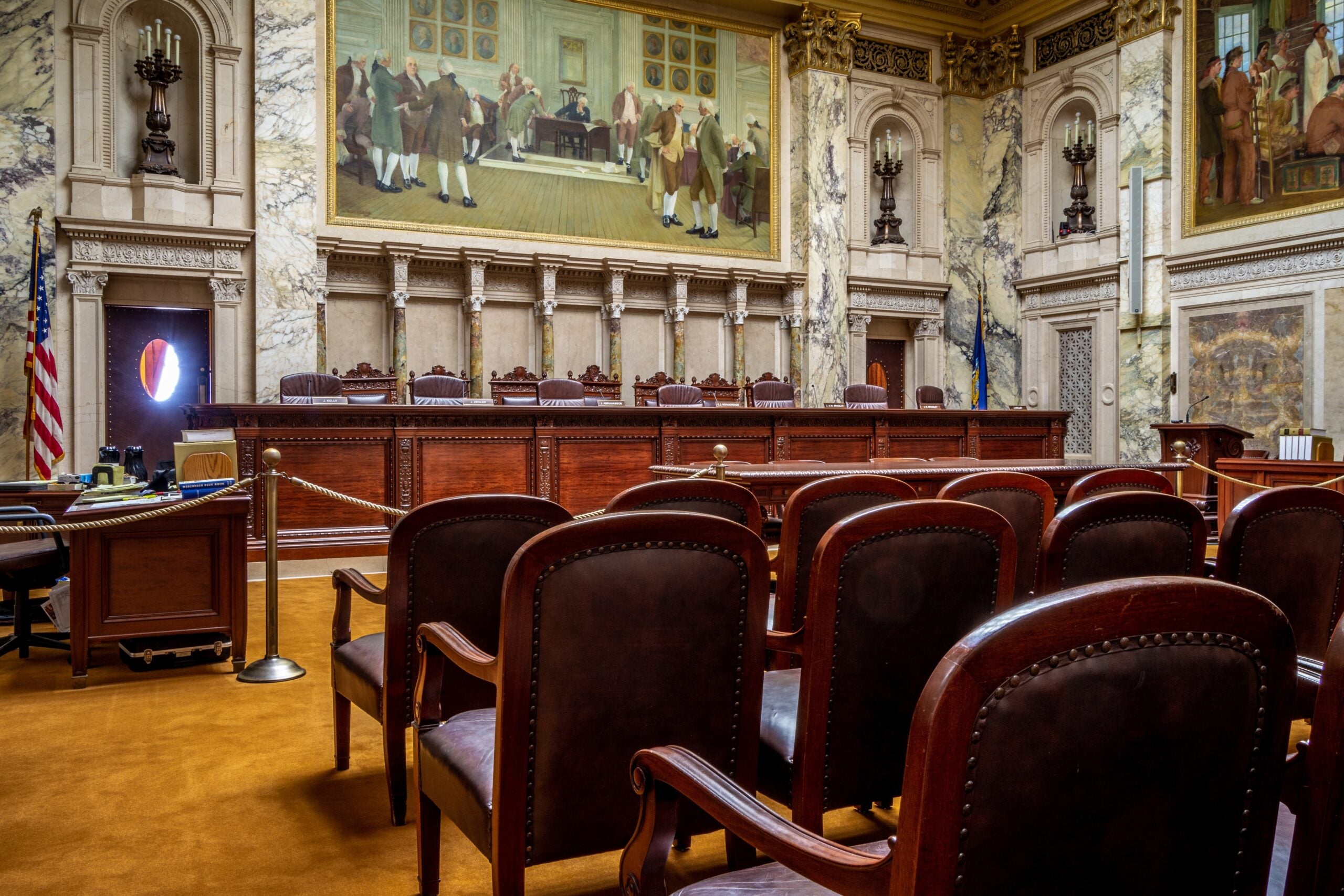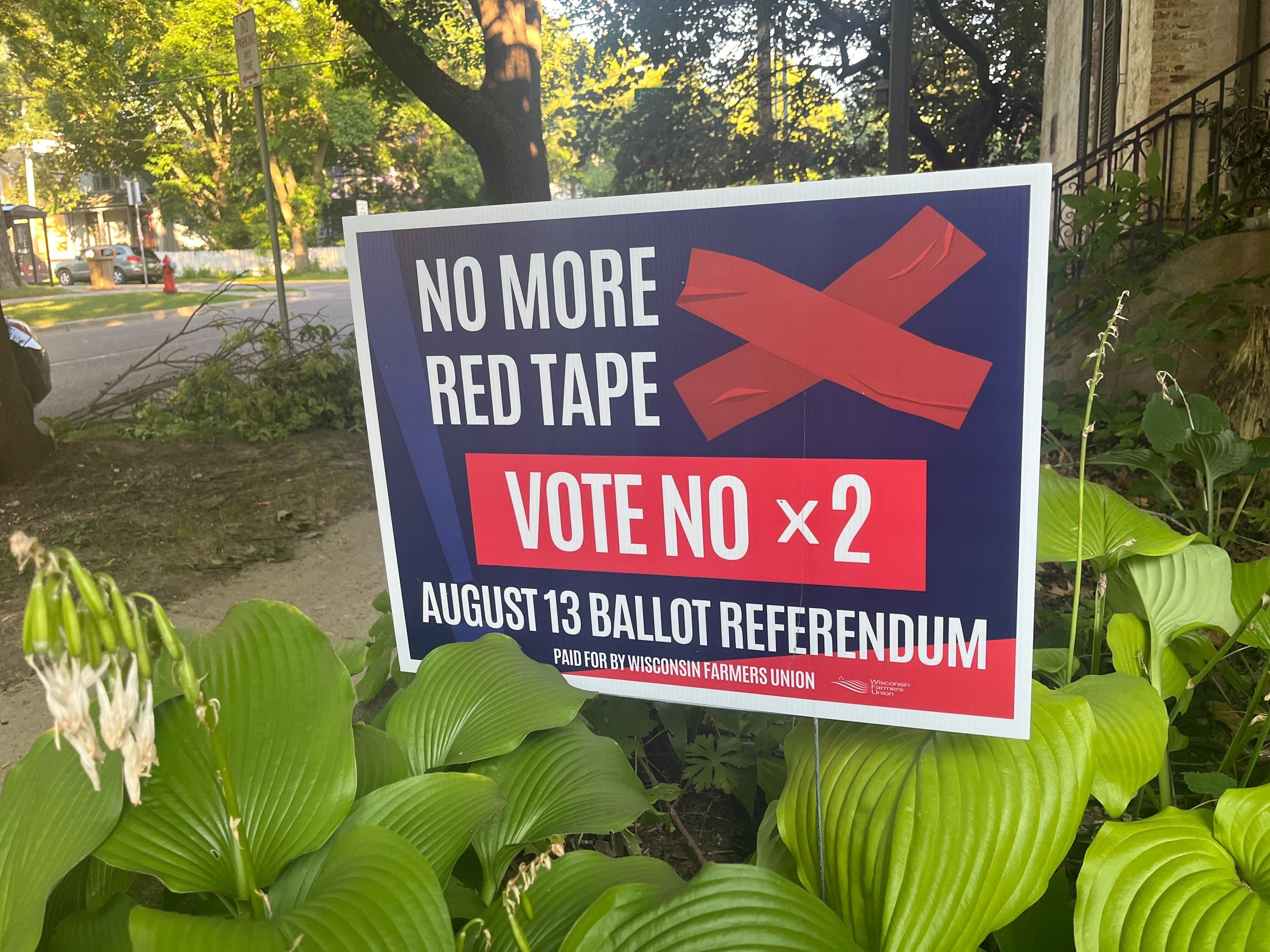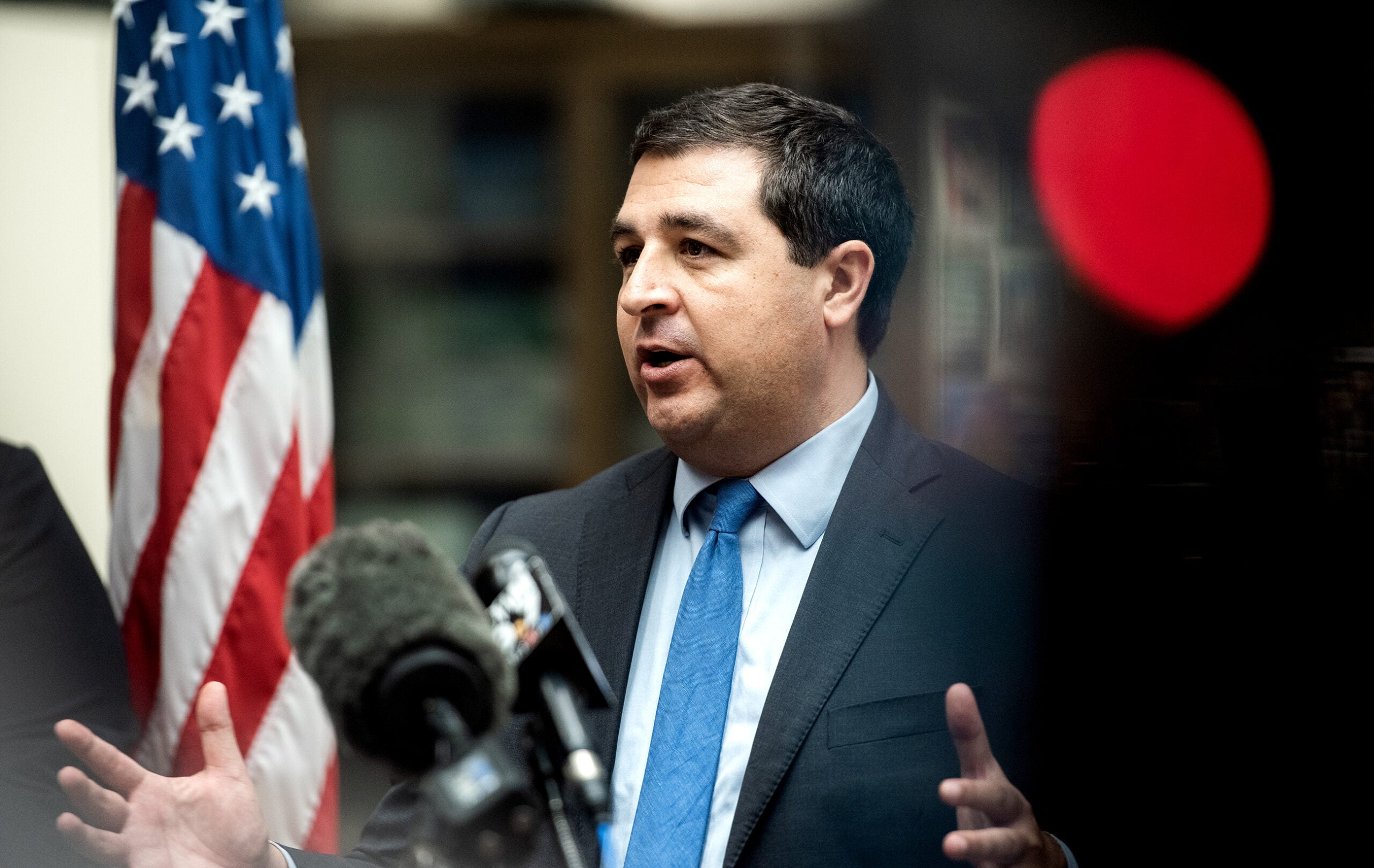The Wisconsin Supreme Court has ruled in favor of Republican state lawmakers and upheld their actions during December’s lame-duck session of the state Legislature.
The lame-duck session passed a number of laws limiting the power of then Gov.-elect Tony Evers and Attorney General-elect Josh Kaul. It also placed limits on early voting in Wisconsin.
The court ruled 4-3 in favor of the GOP on Friday morning, dismissing an argument that the session was called unconstitutionally.
News with a little more humanity
WPR’s “Wisconsin Today” newsletter keeps you connected to the state you love without feeling overwhelmed. No paywall. No agenda. No corporate filter.
The plaintiffs in the case, the League of Women Voters, argued the state constitution doesn’t ascribe the power to call an extraordinary session of the Legislature to lawmakers, thereby making the December session and all actions therein unconstitutional and invalid.
The court’s majority opinion, written by conservative Justice Rebecca Bradley, rejected that.
“The Wisconsin Constitution itself affords the Legislature absolute discretion to determine the rules of its own proceedings,” Bradley wrote.
The court’s liberal justices — Ann Walsh Bradley, Shirley Abrahamson, and Rebecca Dallet — offered a dissenting opinion.
“In order to uphold the constitutionality of the December 2018 extraordinary session, the majority opinion subverts the plain text of Article IV, Section 11 of the Wisconsin Constitution,” Dallet wrote in the dissent. “The Legislature’s ability to determine the rules of its proceedings pursuant to Article IV, Section 8 does not swallow up the meeting requirements of Article IV, Section 11 or allow it to wield unbridled power.”
The court currently has a 4-3 conservative majority. That will move to 5-2 when Justice-elect Brian Hagedorn is sworn in in January.
As the state Supreme Court is the highest judicial power in Wisconsin, the lawsuit ends here.
Evers was quick to decry the decision on Friday morning.
“Today’s decision is disappointing and, unfortunately, all too predictable,” Evers said. “It is based on a desired political outcome, not the plain meaning and text of the constitution.”
Chris Carson, the president of the League of Women Voters of the United States, said the court’s action “undermines the will of Wisconsin voters.”
“The Wisconsin State Legislature’s actions defied the democratic process, which is a major blow to our democracy as a whole,” Carson said.
GOP leaders, meanwhile, defended their actions.
“The Court upheld a previously non-controversial legislative practice used by both parties for decades to enact some of the most important laws in the state,” said Assembly Speaker Robin Vos, R-Rochester, and Senate Majority Leader Scott Fitzgerald, R-Juneau. “This lawsuit, pursued by special interests and Governor Evers, has led to an unnecessary waste of taxpayer resources.”
One other case challenging the lame-duck session remains before the state Supreme Court.
The court has yet to hear arguments in that case, which argues the laws passed during the session violate the state constitution’s separation of powers guarantee by unfairly limiting the authority of the executive branch.
Two federal cases are also pending.
One of those relates to limiting early voting and changes to Wisconsin’s voter ID law passed during the lame-duck session. The other says the session violates the U.S. Constitution’s Guarantee Clause, which guarantees every state the right to a representative, republican form of government.
As those cases move forward, the vast majority of the lame-duck laws have been allowed to go into effect. The only exceptions are the limits on early voting, changes to some voter ID procedures, and a requirement that state agencies allow a public comment period on some public guidance documents. Those elements remain blocked by courts.
Editor’s note: This story was updated with original reporting from WPR and will continue to be updated.
Wisconsin Public Radio, © Copyright 2026, Board of Regents of the University of Wisconsin System and Wisconsin Educational Communications Board.






